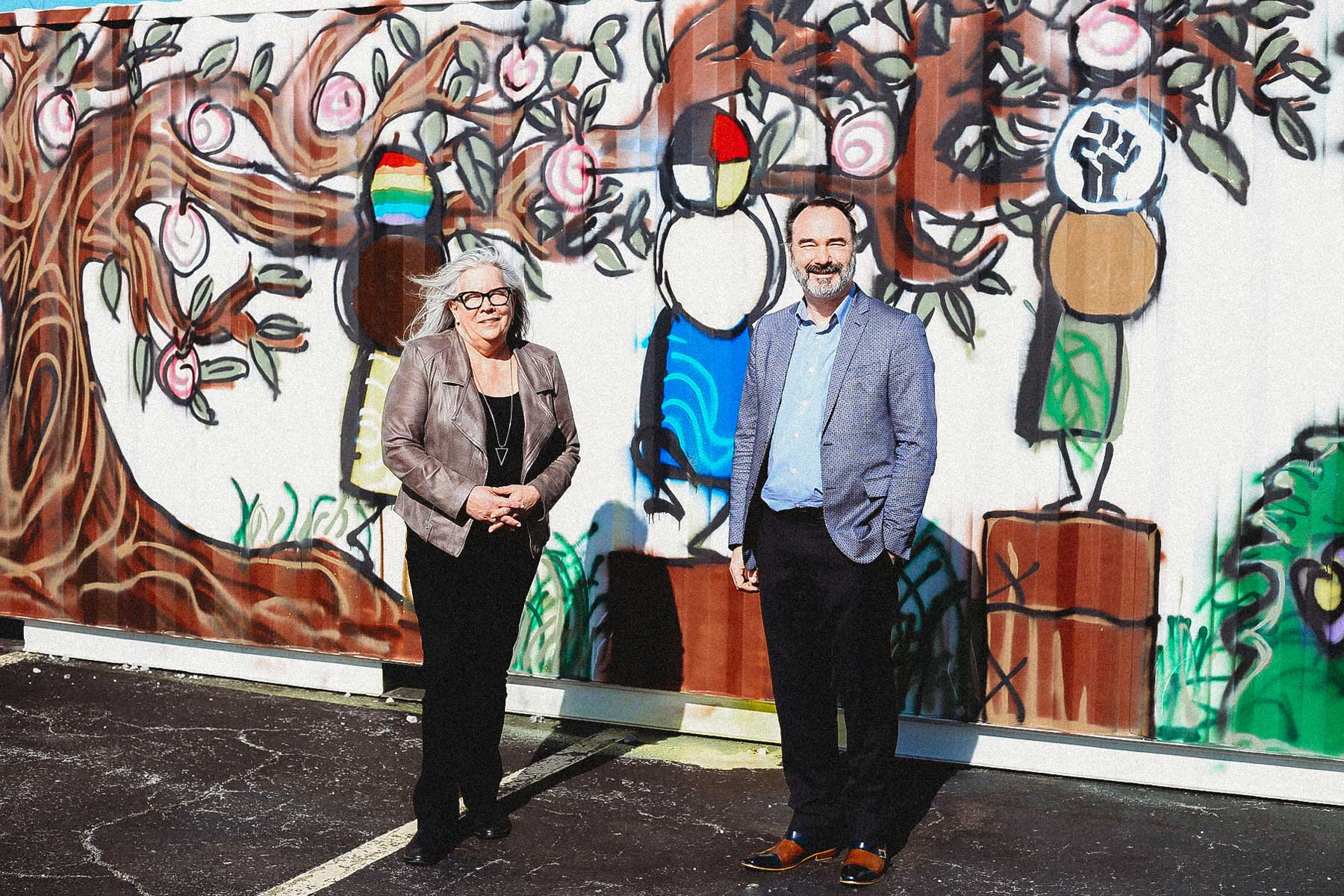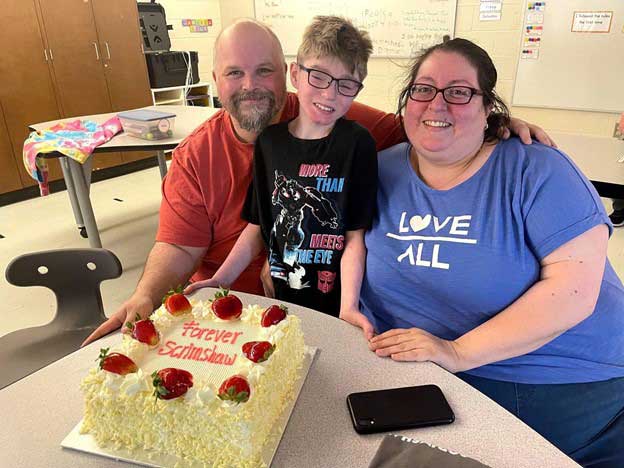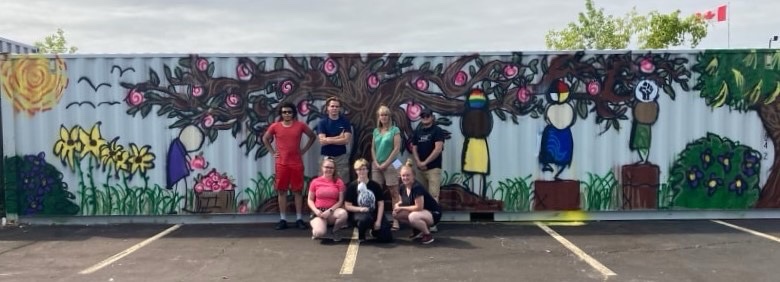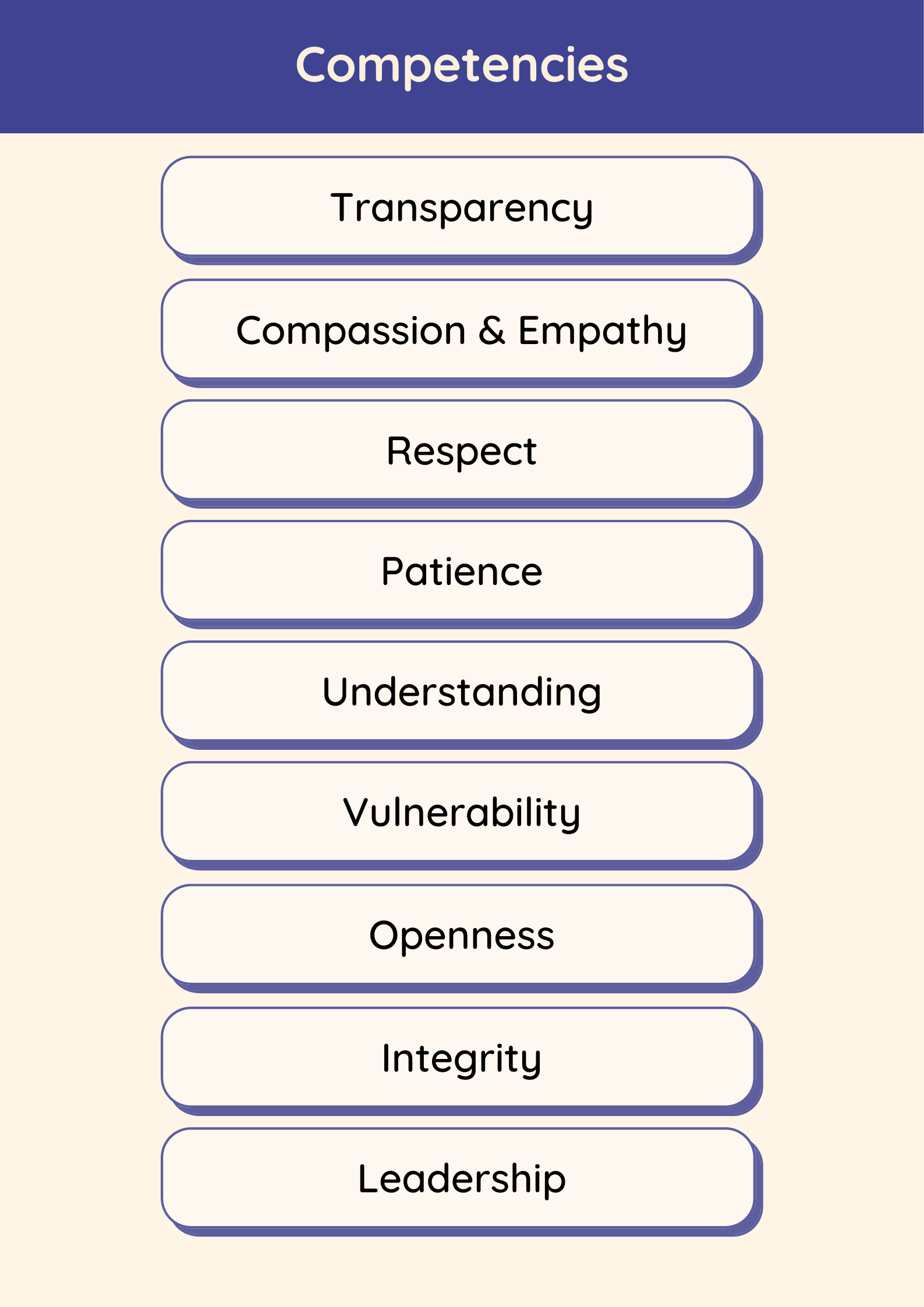The Children’s Aid Society of Hamilton acknowledges our presence on ancestral Anishinaabe and Haudenosaunee Confederacy land as determined by the Dish with One Spoon treaty. The intent of this wampum treaty is for all nations sharing this territory to do so responsibly, respectfully and sustainably in perpetuity. We respect the long-standing relationships with the local Indigenous communities, the Mississaugas of the Credit First Nation and Six Nations of the Grand River. On this land we are mindful of broken covenants and the need to reconcile our history in child welfare and relations with Indigenous peoples. We are especially mindful of the 2015 Truth and Reconciliation Commission’s Call to Action to redress the Legacy of Child Welfare on Indigenous families and communities. We acknowledge that today Hamilton is the home to many Indigenous Peoples from across Turtle Island and we are grateful to have the opportunity to work in this community, on their territory.
Land & Treaty Acknowledgement
Message from Bryan Shone and Denise Christopherson

This past year we welcomed Denise Christopherson, Chief Executive Officer for YWCA Hamilton as our new Board President. Denise is a skilled and respected advocate whose passion for social justice, equity for women, and diversity have greatly contributed to the goal of equality for women and girls. We are pleased to share a message from Denise and Bryan Shone, Executive Director for Hamilton Children’s Aid Society.
We are excited for the opportunity to reflect on the past year and share stories that reflect the agency’s vision and guiding principles. We hope that through these stories we can help others better understand our role as a partner in the community dedicated to children, youth and families in Hamilton. It is important to acknowledge that this work was made possible through the commitment of staff, foster and kin families and volunteers who continued to provide service while navigating the ongoing challenges of the pandemic.
The agency’s work continues to be driven by our 2019-2024 Strategic Vision. The agency’s guiding principles include keeping children safe with their family and in their community, providing service and centering decisions on the needs and voice of children, youth and families, achieving permanency for children and youth involved with the agency and supporting children and youth to reach their full potential, centering equity and inclusion in the agency’s guiding principles, creating a healthy workplace and enhancing relationships and partnerships with identified communities.
Our work to embed equity into every aspect of our work continues. We are excited to share an update on a system navigation pilot program that aims to provide early help and support to Black and racialized families, created in partnership with Empowerment Squared, and we are happy to be co-locating with them to help support our Black, racialized and newcomer communities. We have also embedded our commitment to engage the LGBT2SQ+ community and co-develop supports for youth and their families in our current operational plan, making it a key priority for the upcoming year. This commitment extends through to our board of directors, from recruitment to processes and training for new and existing members.
We want to ensure that the agency’s brand reflects our strategic vision, guiding principles, commitment to equity and inclusion and commitment to collaborative community relations. As a result, we have begun work to rebrand the organization. We are engaging with families, youth, foster families, volunteers, staff, the board and various community partners to help guide this work which we anticipate will be completed this fall.
We hope you can take a moment to read through the stories below and be moved by Danyel, a young boy who defied the odds through the love of his foster and forever family, Alicia, who persevered with the support of her worker and shelter staff to reunite her family and meet some of the youth involved with the agency who actually inspired the design of this report!
All of the stories share the themes of partnership, collaboration and learning. These are essential in our work to prepare for the upcoming inquest into the death of Devon Freeman, a youth our agency was involved with. The upcoming inquest provides the opportunity to work together with Devon’s family, the Chippewas of Georgina Island First Nation and our partners in the community to help identify and implement recommendations that would reduce the risk of a tragedy like Devon’s death from happening again.
In closing, we would like to thank our staff, foster and kin families, volunteers, board members, donors and partners in our community for helping to ensure we can provide services to children, youth and families.
Safety and Well-Being
At Hamilton CAS, 98% of the work we do to support the safety and well-being of children, youth and families is in their homes or community. By working with families early, we can often provide support and connections to resources in the community to help families thrive. We are excited to share these stories of this excellent work in action.
System Navigation Pilot program aims to provide early help and support to Black and racialized families
Hamilton CASs involvement with Black and racialized families has expanded given the culture landscape in Hamilton. Veronica Bennett-Shaw, supervisor of the Racialized and Newcomer team shares an update on how the team works collaboratively with a key community partner to provide early help and support to families and shifting practices to meet their specific needs.
The agency’s Racialized and Newcomer team supports the agency’s belief that providing community-based support services, developed and delivered within a wholistic and culturally based context, will contribute to increased engagement and better outcomes for Black and newcomer families, children, and youth within our community.
One of the goals of the Racialized and Newcomer team is to address the overrepresentation of Black families and children within Ontario’s welfare system, as well as supporting racialized and newcomer families with settlement and other issues. Recognizing these families’ uniqueness, the team’s goal is to, listen, then support by connecting them with culturally appropriate community resources.
Together with Empowerment Squared, a community organization dedicated to empowering newcomer and marginalized families with the tools and opportunities to thrive and contribute to society, the team has developed a pilot project, the System Navigation program. In this program workers from Empowerment Squared and the agency work collaboratively to help families navigate systems such as schools, daycare, hospitals, banking, parenting in Canada and immigration issues to name a few. Within this pilot project there is an interactive workshop for newcomer parents around engaging in discussion about parenting in Canada.
Taking time to listen and fully connect with families has been a key element of engagement with families. Working with translators has allowed the “slowing down” process to happen more organically. Gathering accurate information and asking the right questions is essential in our work, given the different languages and dialects of the families we work with.
Learning about different ethnic groups and gaining a better understating of their lifestyles and ways of parenting is also essential in our engagement with families. The team has taken the approach that if they spend time to learn from our families and build relationships that this will reduce the fear of CAS within these communities. This will ultimately lead them to be more open to sharing their concerns with us.
As we continue to gather community resources it’s our hope to extend our knowledge and resources across the agency so we can continue to provide the best possible support to families.
Permanency and Potential
Enabling children and youth to find permanency and reach their full potential is vital to our daily work. The following stories highlight the resilience of the children, youth and families that we serve.
Meet Danyel: Defying the odds with the support of his forever family
Danyel’s adoption was just finalized in March 2022, two years after placement because of delays caused by the pandemic. In that time, he has flourished with his family and made gains many believed would not be possible in his lifetime. He has grown in every way imaginable and despite the significant challenges that he has faced since birth, his spirit and love of life never wavered. We are excited to share his amazing story.
 Danyel is a social, fun loving and engaging 11-year-old boy. He is creative and enthusiastic. When he is not busy building things with his Lego and playing with his toy cars, he loves playing with his friends. Danyel loves to be helpful and is always excited to meet new people. He loves being outside and being busy and recently developed an interest in helping his mom cook. More importantly, Danyel now loves to EAT which is a life changing development as it was not a reality for him prior to being placed in his adoptive home.
Danyel is a social, fun loving and engaging 11-year-old boy. He is creative and enthusiastic. When he is not busy building things with his Lego and playing with his toy cars, he loves playing with his friends. Danyel loves to be helpful and is always excited to meet new people. He loves being outside and being busy and recently developed an interest in helping his mom cook. More importantly, Danyel now loves to EAT which is a life changing development as it was not a reality for him prior to being placed in his adoptive home.
Danyel was born with multiple health complications, requiring numerous surgeries when he started out in life and many more over the last 11 years, including several open-heart surgeries – his last one being just a few months before being placed on adoption.
It was felt for many years that given the number of complications and challenges facing Danyel, that adoption might be a difficult feat. His worker felt strongly, however, that he deserved to have a family and together with Wendy’s Wonderful Kids made every effort to make this happen.
Despite some significant odds, Danyel was placed with his family at the beginning of the COVID-19 lockdown. Given that Danyel had only ever been in one foster home his entire life, there were some worries over this transition. COVID also meant the closure of school, Danyel’s absolute favourite thing in the world and a place of support and routine.
However, yet again, Danyel amazed everyone. He defied the odds and transitioned into his adoptive family with ease. He adjusted to a new family, new city, new school, new routines and even online learning with grace.
Most miraculously, he is receiving his nutrition orally, and his G-tube has been removed. If fact, he also helps his mother with the cooking and baking and actually makes his own breakfast every morning.
He has a peer group both at school and home that has him out playing with friends all the time. And the icing on the cake is that in addition to participating in swimming lessons and beginning baseball this summer, he will also be participating in the Special Olympics of Ontario Track & Field this spring.
In February he brought his cardiologist to tears with his progress and how he has grown and matured since being placed with his forever family. Danyel is rarely without a huge smile on his face and fills people’s hearts and lives with joy through his excitement and affection. He reminds us of the power of family and unconditional love.
Meet Alicia: Working together to reunite a family
When a child is in the care of Hamilton Children’s Aid Society, the goal is to reunify children with family whenever possible. Sometimes this process takes time, effort and determination. Alicia’s* story highlights how one mother, with the right support at the right time, helped bring a family back together.
Alicia is a young mother who was struggling with substance use, mental health issues and homelessness. Her two oldest children live with their grandmother however her third child Jenna* was being cared for by foster caregivers.
Because of her struggles, Alicia was not able to see Jenna often or develop a connection with her. She felt she couldn’t care for her in the way she needed and believed Jenna would grow up under the care of foster caregivers or with another family who could meet her needs.
When Alicia became pregnant with her fourth child, things started to change for her. She began to connect with her CAS worker more often, stopped using drugs and sought treatment to help her maintain her sobriety. When her son Jake* was born, she moved into a shelter for young mothers that provided programs and support to help her care for him. There was a great working relationship between the shelter staff, the mother and CAS worker and there is no doubt that this helped Alicia make progress.
Alicia continued to do well in her programming, and she was doing a great job caring for Jake. With the support of the shelter staff, she started to have visits with Jenna again and their bond began to grow. She eventually moved into her own apartment and began working with a Prevention and Reunification Worker who would visit the family in their home to provide extra support. Because of Alicia’s hard work and determination Jenna returned to her mother in early 2022. Her two oldest children also visit their mother and siblings regularly!
Alicia’s worker has been one of her biggest champions – “Alicia is someone who not only overcame her challenges in a short period of time, but she did not allow these challenges to define who she is. Alicia’s resiliency, determination, will and true desire for change have ultimately acted as a catalyst for her transformation into the woman and mother that she is today” – Alba, Family Service Worker.
When asked about her progress, Alicia commented “Initially there were a lot of things I did not want to do but at the end I am glad I was encouraged to do them because they got me where I am today”.
*names have been changed
RYSE: A summer jobs program rooted in empowerment and removing barriers to success
Throughout the pandemic, youth have been facing unique challenges related to employment, housing, education, and resource access. Youth in care have also been experiencing similar challenges. With summer employment opportunities on the decline the agency saw this as an opportunity to engage youth and offer an environment that promotes learning, skills development, and enables meaningful contributions to the agency’s work.
Over the past year, Hamilton Children’s Aid Society started an innovative initiative: the RYSE (Raising Youth for Summer Employment) program for youth in and from care that empowers by removing barriers and supports young people from care to utilize the resources needed to succeed.
Beginning in July 2021, the RYSE program allowed five youth from care to experience working in various departments across the agency while moving the agency’s strategic vision forward. This program has created countless opportunities for youth from care to provide their own insight and personal experiences, as well as learn important skills and gain valuable career experience.
The five youth also came together to design and create a mural which represents the agency’s commitment to diversity, equity, and inclusion. The mural has been completed on a storage container in the agency’s parking lot, where many children, youth, families, employees, and members of the community will be able to enjoy it.
Given the success of the program, RYSE will continue in the summer of 2022 and we remain committed to helping youth thrive and achieve their full potential!

Engaged and Inspired
Ensuring that staff feel heard, appreciated, and motivated is part of our commitment to engaging and inspiring each other in a healthy workplace. Our staff-led Employee Engagement initiative demonstrates the importance of developing action plans and welcoming diverse perspectives when implementing changes.
Engaging employees in creating a healthy workplace
Staff feedback is an important component of a healthy workplace. In 2020, the Senior Team received feedback from a staff survey led by the Union and consultant-led focus groups. This feedback identified four key areas of focus for the agency:
- Positive Culture Statement
- Equity of Assignment
- Healthy Workplace
- Leadership Development
Once these key areas were identified, four staff-led working groups were created to guide the work by developing positive relationships, collaborating with all levels of the organization, and creating a respectful environment where challenging and difficult conversations can take place.
The four Employee Engagement working groups have been meeting regularly to create strategies to engage colleagues and utilize critical thinking in the development of new ideas. Creating the space and dedicating time to work together on creating a healthy workplace is a key focus in the agency’s vision and operational plan.
Strategic Partnerships
The pandemic created some unique challenges, but it also created some valuable opportunities to build on strategic partnerships, which is a key part of the agency’s strategic vision. Over the past year, we have been able to strengthen relationships within our community and with our community partners through our shared values and commitments. The following story highlights some of these partnerships and innovative approaches.
Hamilton CAS is committed to the principles of equity, inclusion and diversity, and developing a workforce that reflects the diversity within our community. We are committed to ensuring adequate staffing and skill levels are available to service the needs and volumes of the families and children we serve. We are proud to partner with other agencies, as well as community partners, to highlight these principles and commitments in our hiring practices.
The past year brought us the opportunity to be innovative in our approach while working alongside Ogwadeni:deo, the Catholic Children’s Aid Society of Hamilton, and The Children’s Aid Society of Haldimand & Norfolk to facilitate virtual job fairs. Collaborating in virtual job fairs has been an effective and efficient way to source new and diverse talent for each of our agencies.
We have also further developed our partnership with the Ryerson Bridging Program by participating in mock interviews to assist in preparing Internationally Educated Social Workers (IESWs) for success in their chosen field.
These types of collaborative efforts with other agencies and our community partners support our agency’s strategic vision and operation goals. We are excited to continue growing in these partnerships in the future and developing new ones to help us on our journey of continuous improvement and service excellence.
Continuous Improvement
Part of the society’s strategic vision is to provide quality service, a key element of continuous improvement. Through this vision, we saw an opportunity to redefine how our clients, staff, the community, and other professionals experience us. We have developed a customer service model which aspires to raise the bar of how we deliver service.
Collaborative Community Relations Model
At Hamilton Children’s Aid Society, we have utilized our vision and strategic goals to help us develop a customer service model with principles and core competencies that illustrate our passion and commitment to the safety and well-being of children. In fact, the organization has come together to find a name that encompasses our commitment and standard for service excellence for the model. The name created and chosen by staff is the Collaborative Community Relations Model.
The model redefines how service users and community partners experience the agency whether it is through child protection services, collaborative services, community programs or simply through their interactions with us. It acknowledges the values and competencies that are important to quality service we provide to our growing and ever-changing community.
In creating the model an opportunity presented itself to provide an equitable opportunity to share feedback through listening tours, surveys and consultation with key stakeholders. It is important for us to understand how we can serve our community better and to ensure the voices of those we work with, foster and kin families, volunteers, our community and our staff are heard.
Our principles and competencies incorporate our key values such as equity, collaboration, and professional excellence. Part of this framework also includes a formalized process to hear complaints and concerns from families we work with. This wholistic approach touches each aspect of the work we do and help us to continually improve the experience of those whose lives we touch.

Resources and Sustainability
This guiding principle ensures that valuable resources are in place to support service outcomes and ensure financial sustainability.
Empowering families for the holidays, no matter how they celebrate
The organization’s Grateful Hearts program is reflective of the diverse faiths, traditions and holidays observed by the children, youth, and families that we serve. The program was created to ensure families feel supported and empowered to make their own purchases, no matter when and how they celebrate.
In early 2022, the program was expanded to support families observing Ramadan. By expanding the program to support families throughout the year, as opposed to only during December, more families in the Hamilton community are being empowered to purchase their own gifts, groceries, supplies, toys and more based on their own needs.
One family who was supported during Ramadan shares; “The gift cards are so helpful and help us buy essential food and other items needed for Ramadan. We were able to buy new clothing for Eid (which requires us to wear clothing that has never been worn). To the donors, we share blessings and well wishes. Thank you for making this possible.”
Over the last year, the Grateful Hearts program has:
- Empowered 444 families to make their own purchases, no matter how they celebrate
- Supported a total of 705 adults and 1,045 children
- Provided families in the Hamilton community with $76,225 in Wal-Mart gift cards
A heartfelt thank you to all our donors and businesses in the community that continue to make this program possible. Your generosity is appreciated by the children, youth and families we serve.
2021-2022 Stats at a Glance
Top 3 reasons for working with families:
caregiver with addictions/mental health challenges
child exposure to domestic violence
physical force and/or maltreatment
879
families supported on an ongoing basis
Families working voluntarily with us
Families supported in their home or in the community
2021-2022 Financials
Hamilton Children’s Aid Society has reported a surplus for the fiscal year. We are in a strong financial position to ensure financial sustainability and to promote the agency’s strategic vision.
| 2021-2022 (in '000s) | 2020-2021 (in '000s) | |
|---|---|---|
| Total Revenue | 52,616 | 50,832 |
| Total Expenses | 50,768 | 47,175 |
| Surplus for the year | 1,848 | 3,657 |
This is a summary of details in the 2021-22 audited financial statements prepared under Public Sector Accounting Standards (PSAS) and audited by MNP LLP. A full audited financial statement is available here.
